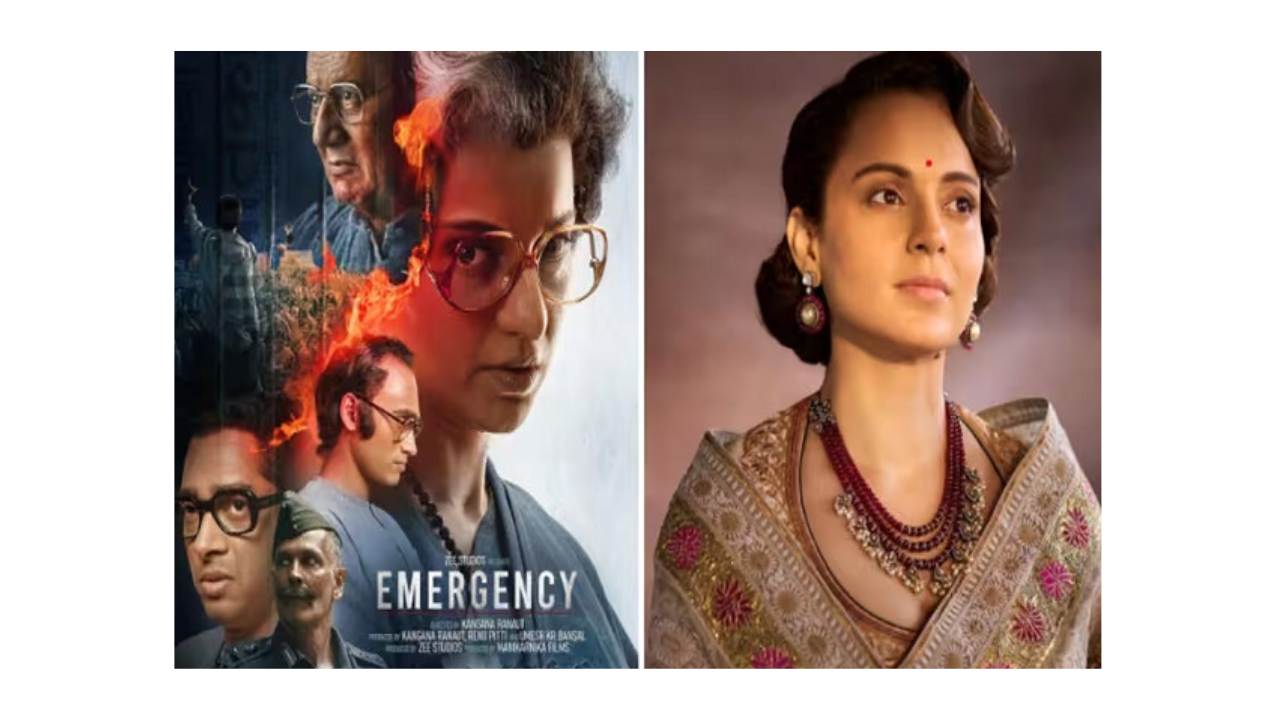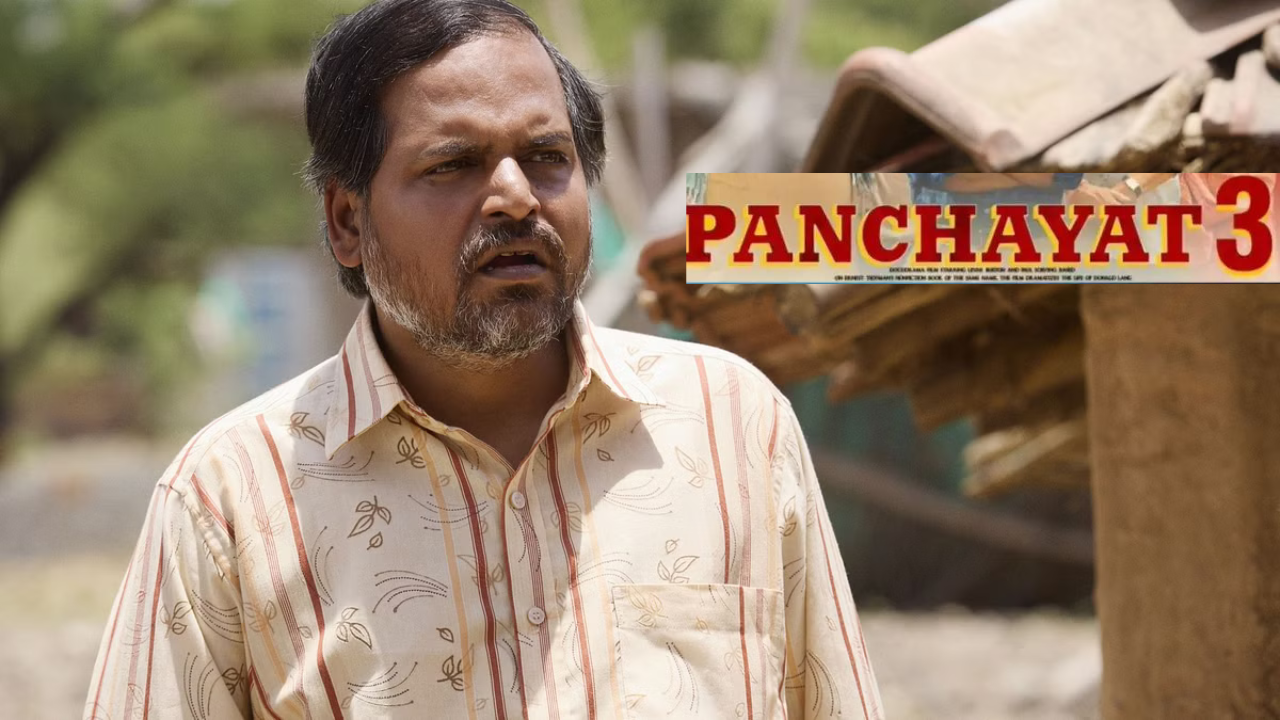At the center of yet another dispute, this one involving her next film Emergency, Bollywood actress and BJP MP Kangana Ranaut allegedly received death threats as the premiere date of the movie approached; hence, she contacted police authorities in Maharashtra, Punjab, and Himachal Pradesh for safety. Especially among Sikhs, the controversy has sparked a heated debate on how the film presents delicate historical events.
Set for release in September 2024, Emergency vividly depicts the life of former Prime Minister Indira Gandhi during the 1975 Emergency, which drastically altered India’s political landscape. While some Sikh groups feel the trailer distorts significant historical figures, its excellent portrayal of this century has attracted curiosity.
Most of the discussion stems from the way Jarnail Singh Bhindranwale, whose legacy is still highly divided inside the Sikh community, is portrayed. A number of men, including Punjabi star Vicky Thomas Singh, are seen in a popular video traversing social media threatening Ranaut violently. These individuals argue in the video that the film portrays Bhindranwale as a terrorist, a portrayal they find offensive of Sikhs. They warn that the way the film is released could have bloody consequences.
Referring to the murder of Indira Gandhi by her Sikh bodyguards in 1984, Singh makes one particularly worrisome comment: “If we can sacrifice our heads, we can also take heads.” Ranaut immediately sought protection from the authorities since this video greatly worried her about her safety.
Sharing her concerns, Ranaut went on social media, tagging the official police departments in Maharashtra, Punjab, and Himachal Pradesh. She cautioned them to consider the hazards and act to ensure her safety. Emphasizing the seriousness of the problem, she advised, “Please look into this.”
First emerging, Emergency has been encircled in debate largely due to its focus on one of India’s most contentious figures. Indira Gandhi’s declaration of emergency rule is still a very divisive topic; hence, any movie portrayal of this age will surely cause strong emotions. Given the delicate nature of Bhindranwale’s legacy inside the Sikh community, the introduction of his persona has merely added to the complexity.
Against ongoing resistance, Emergency is booked for a nationwide debut on September 6, 2024. Among the ensemble cast in the film are Shreyas Talpade, Mahima Chaudhry, Milind Soman, and Anupam Kher. As the release date approaches, the scenario keeps shifting; many people are closely watching how authorities and the public respond to the threats aimed at Ranaut.
Future major issues demand cautious balancing artistic independence with consideration for society sentiments. Filmmakers have the right to research and depict historical events, but they also have to be conscious of the probable effects on many communities and the more general consequences for society. As the debate over historical depiction and freedom of expression continues, movies like Emergency act as a reminder of the great impact they have in influencing public opinion.
In the dispute, this one surrounding her forthcoming film Emergency, Bollywood actress and BJP MP Kangana Ranaut allegedly received death threats as the premiere date of the movie approached; consequently, she called police authorities in Maharashtra, Punjab, and Himachal Pradesh for safety. Especially among Sikhs, the controversy has sparked a heated debate on how the film presents delicate historical events.
Set for release in September 2024, Emergency vividly depicts the life of former Prime Minister Indira Gandhi during the 1975 Emergency, which drastically altered India’s political landscape. While some Sikh groups feel the trailer distorts significant historical figures, its excellent portrayal of this century has attracted curiosity.
Most of the discussion stems from the way Jarnail Singh Bhindranwale, whose legacy is still highly divided inside the Sikh community, is portrayed. A number of men, including Punjabi star Vicky Thomas Singh, are seen in a popular video traversing social media threatening Ranaut violently. These individuals argue in the video that the film portrays Bhindranwale as a terrorist, a portrayal they find offensive of Sikhs. They warn that the way the film is released could have bloody consequences.
Referring to the murder of Indira Gandhi by her Sikh bodyguards in 1984, Singh makes one particularly worrisome comment: “If we can sacrifice our heads, we can also take heads.” Ranaut immediately sought protection from the authorities since this video greatly worried her about her safety.
Sharing her concerns, Ranaut went on social media, tagging the official police departments in Maharashtra, Punjab, and Himachal Pradesh. She cautioned them to consider the hazards and act to ensure her safety. Emphasizing the seriousness of the problem, she advised, “Please look into this.”
First emerging, Emergency has been encircled in debate largely due to its focus on one of India’s most contentious figures. Indira Gandhi’s declaration of emergency rule is still a very divisive topic; hence, any movie portrayal of this age will surely cause strong emotions. Given the delicate nature of Bhindranwale’s legacy inside the Sikh community, the introduction of his persona has merely added to the complexity.
Against ongoing resistance, Emergency is booked for a nationwide debut on September 6, 2024. Among the ensemble cast in the film are Shreyas Talpade, Mahima Chaudhry, Milind Soman, and Anupam Kher. As the release date approaches, the scenario keeps shifting; many people are closely watching how authorities and the public respond to the threats aimed at Ranaut.
Future major issues demand cautious balancing of artistic independence with consideration for society’s sentiments. Filmmakers have the right to research and depict historical events, but they must also be conscious of the probable effects on many communities and the more general consequences for society. Movies like Emergency remind us of the great impact they have in shaping public opinion as the debate over historical accuracy and freedom of speech carries on.




